TAYSIR BATNIJI
Since 2011, images of the war in Syria (destruction, burned bodies, armed men, refugee camps, migrants trying to cross sea and borders, often at the risk of their lives…) have been haunting the screens of our TV sets. Commissioned by the Belgian fund CoopMed, I went to Beirut where I was able to meet Syrian migrants who found the strength, despite the difficult reality of their journeys, the loss of their homes and loved ones, the economic distress, to rebuild a present in Lebanon. I have tried, through my photographs, to present each person, each individual, in his or her humanity. Out of the numbers and take the time to pose with dignity. Adila, Amani, Howaida, Eman or Hanan, all these women – because they are women! – have lent themselves, more or less spontaneously, to the meeting, have taken the time to retrace their journey, their adaptation to the Lebanese context (sometimes not very open to their person), and to present their activity to me. I hope that my images, which are more like ‘interviews’, will convey their ability to hope and their life force.
Adila Mohammad Lotfi Abdo
Adila comes from Idleb, in northwestern Syria. She settled in the Chouf region of Lebanon with her family in 2011, when the war broke out and after the death of her eldest son, leaving a son in prison. After three years of effort, she managed to get him released. He joined them. Adila has been working for six years in a soap factory. Her first credit application to Al Majmoua allowed her to buy olives for her own soap production. She now has a good number of clients. Every year, she makes an additional loan to buy her raw materials and live a little easier. “The loan is very small, but I live well”, said Adila.
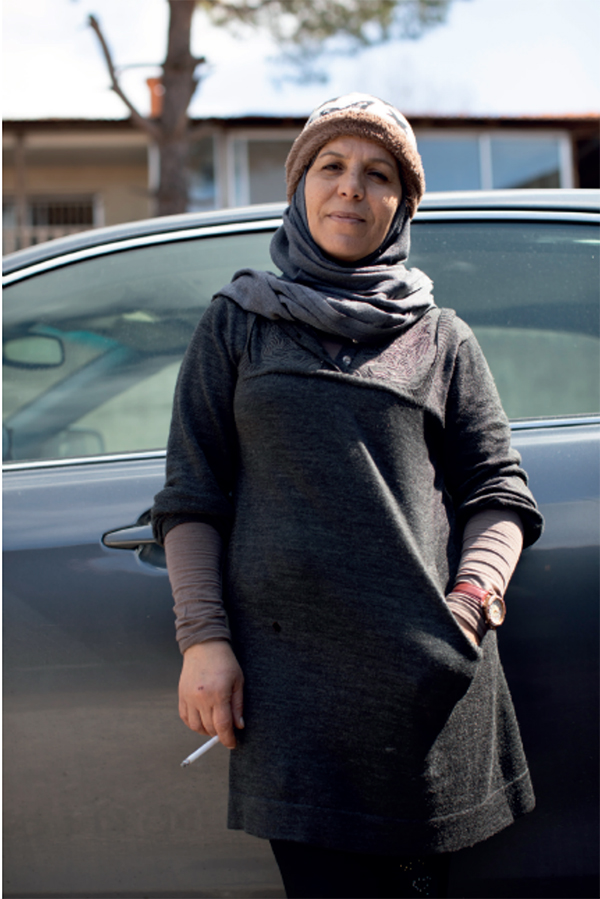
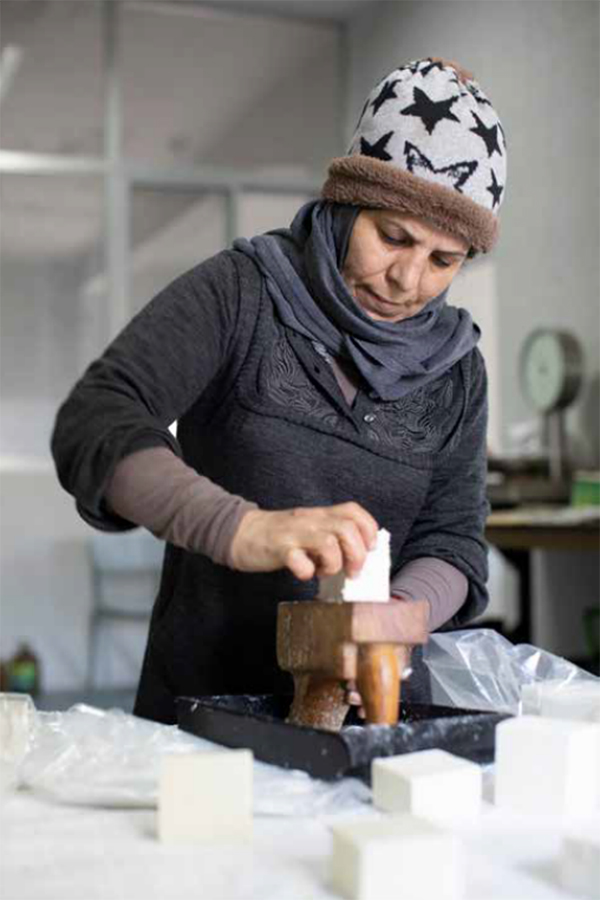
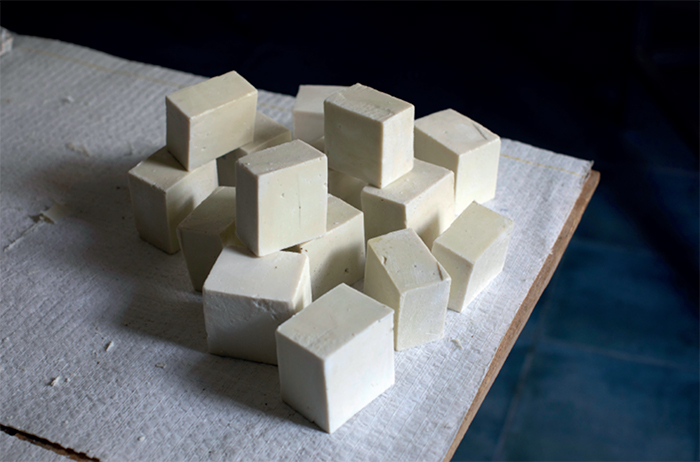
Howaida Mohammed Al – Qabalawi
Howaida comes from Dar’a, in southwestern Syria. Fleeing the war, she arrived in Beirut with her husband and 3 children in 2012. She was able to survive thanks to the help of the United Nations. She followed a training in the field of aesthetics (cosmetics), which allowed her to work a little. But living conditions in Beirut were difficult and the family moved to Tripoli. There, her husband abandoned her and her children without giving any news. So she decided to move to Aley where she started working in a beauty salon. Her contract was of short duration: Syrians were not really welcome… Then Howaida learned about Al Majmoua’s micro-credits. This is how she was able to set up her modest hair salon at home in Aley. When asked if she wanted to return to Syria, Howaida replied that she could not do so, as her home region, about 100 kilometers south of Damascus, still under siege.
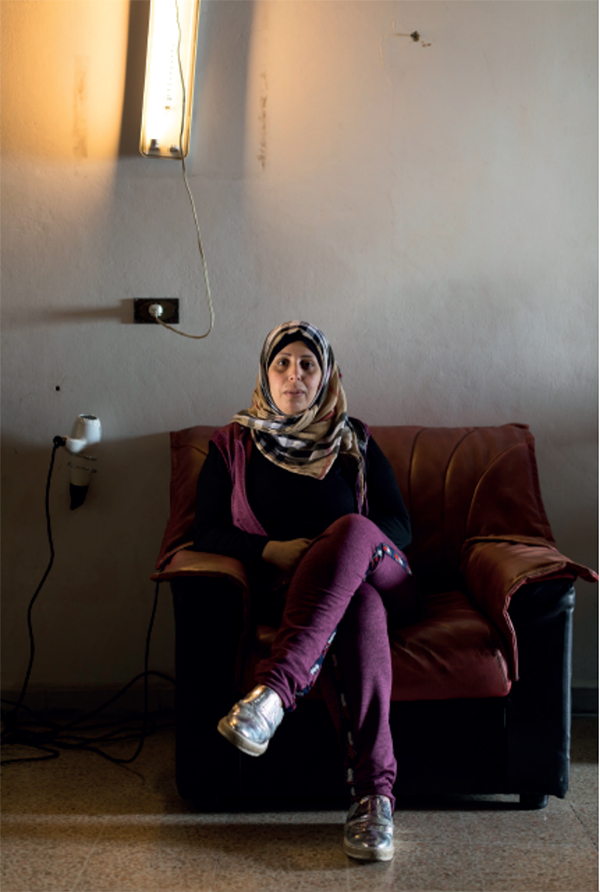
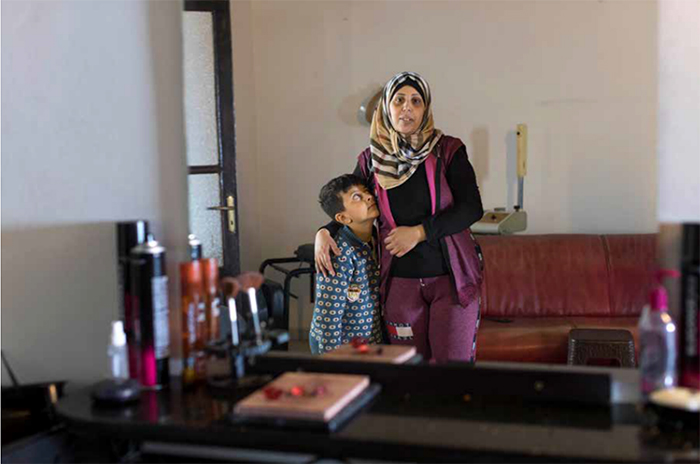
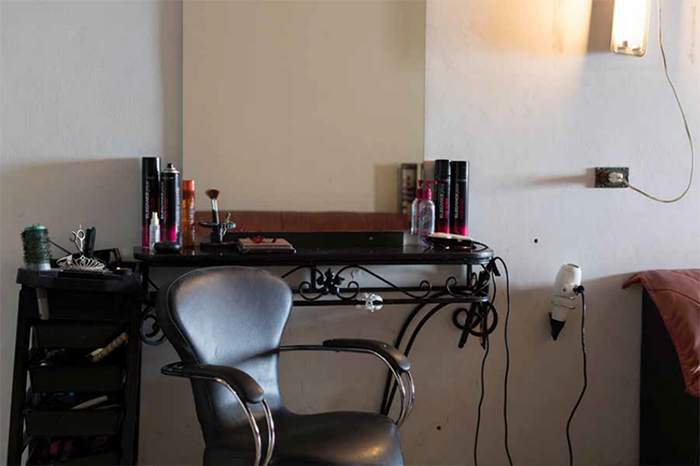
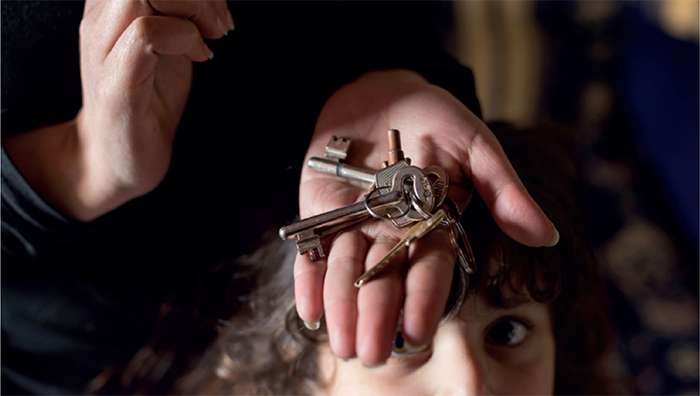
Hanan Mohammad Al Sabbat
Hanan is also from Idleb. She left Syria with her family at the beginning of the war, in 2011, to settle in Lebanon. When they arrived, they only had a thousand dollars in their pockets and their financial situation was no longer sufficient to pay for the care of Hanan’s husband, a diabetic. His retina has been damaged and since then he can no longer work. Hanan requested a loan from the group Al Majmoua and trained at the Lebanese Solidarity Association Basmeh & Zeitooneh. Thanks to Al Majmoua’s credit, she opened a modest clothing store in a room of her house. Every Saturday and Sunday, she is supplied in the Al-Rihab district, near the Palestinian refugee camp of Shatila. Hanan does not wish to return to Syria until tensions, particularly in Idleb, will not have ceased. Their house was demolished by the bombings and they have nowhere to go with their four children.
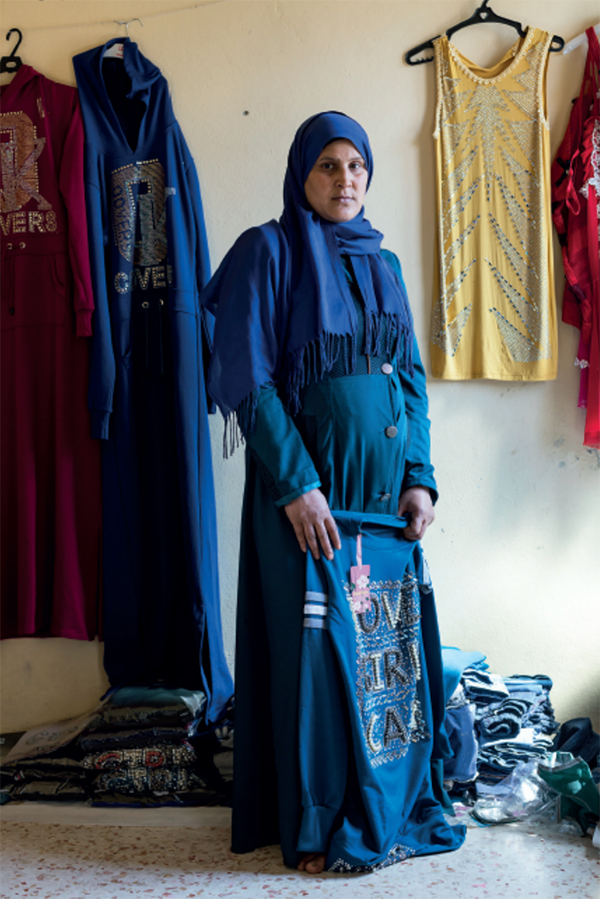
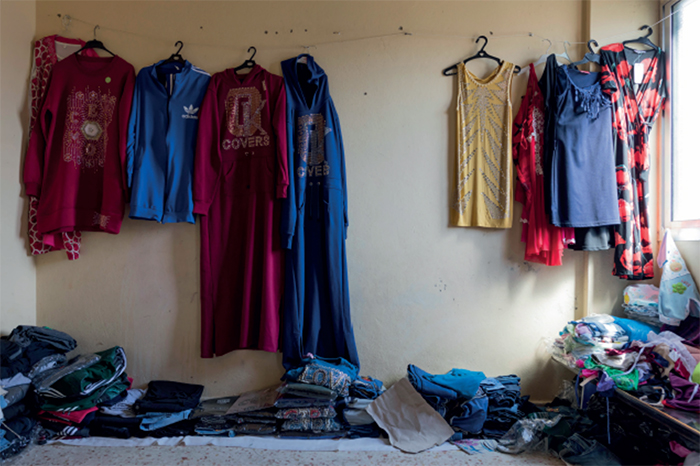
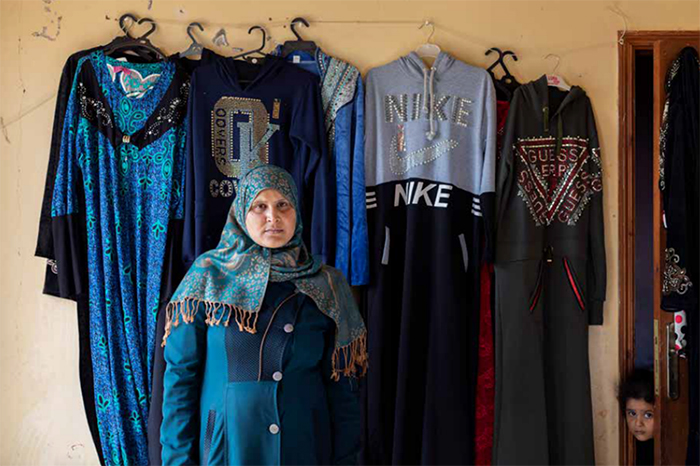
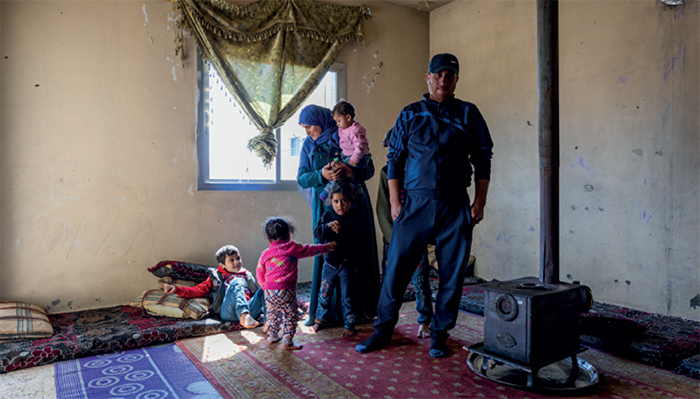
Amani Mahmoud Romieh
Amani comes from Al-Salihiyah, in eastern Syria. She arrived in Lebanon in 2011 with her twins. Her husband had to stay in the country because of of a tendon rupture in the leg. Before the war, Amani sold clothing in Syria. She therefore decided to continue her work in Lebanon. Thanks to its loan from the group Al Majmoua, she opened her own store in clothes to Aley, where she moved in. Amani seems satisfied with the stability of her new life in Lebanon. Her children are in school and no one, for the moment, is thinking of going back to Syria.
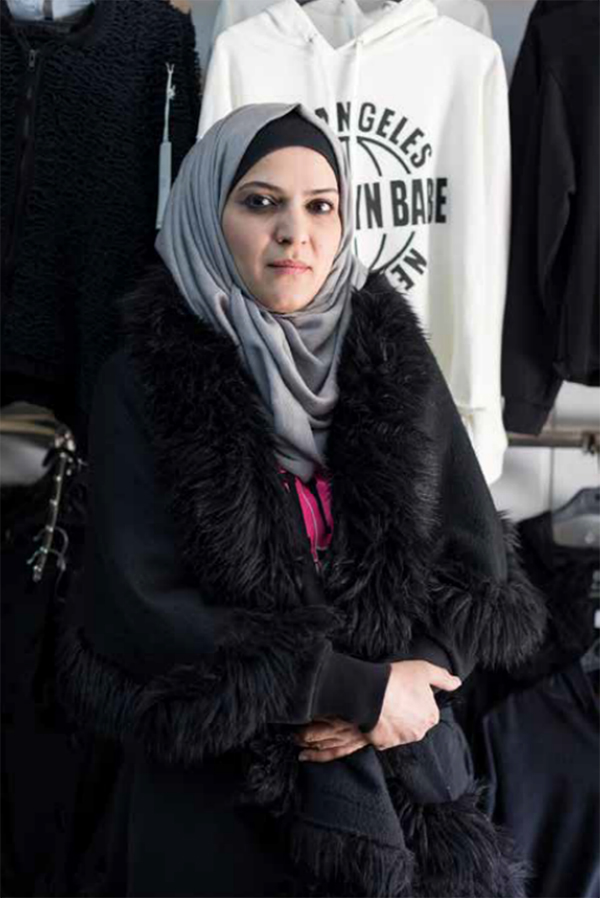
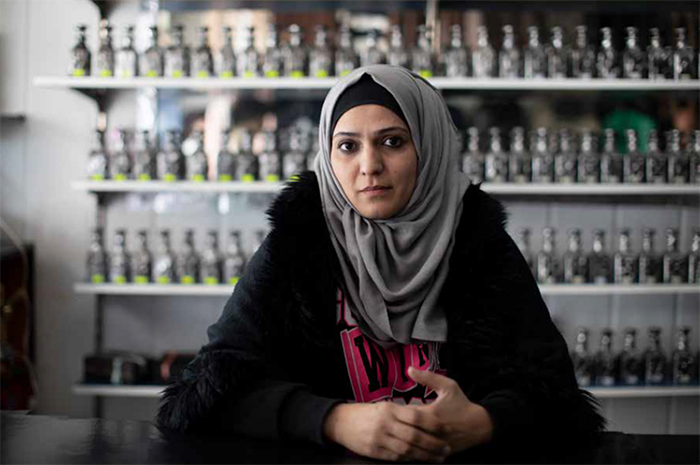
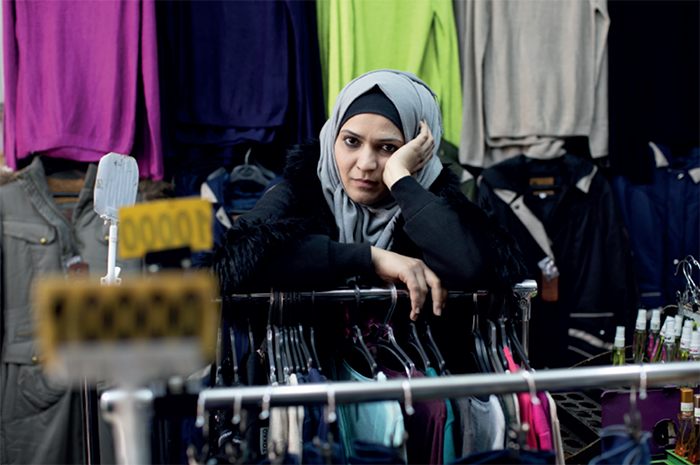
Iman Salman
Iman comes from Ghouta, on the eastern outskirts of Damascus. She left Syria because of the war in 2013. She says her husband was trapped in their home for ten days, which pushed him to leave in a clandestine way to Lebanon shortly before his family. He took time to find accommodation in Aley, a job and then brought in his own.The remoteness of her country and her Syrian family was very hard to Iman. Until the day when the Terre des Hommes association proposed to her to become a volunteer teacher at home to refugee children, two hours a week. After that, she was offered a job and began to develop and organize educational activities for children. In addition, she requested a loan from Al Majmoua in order to create her own company of sale of artisanal preserves.
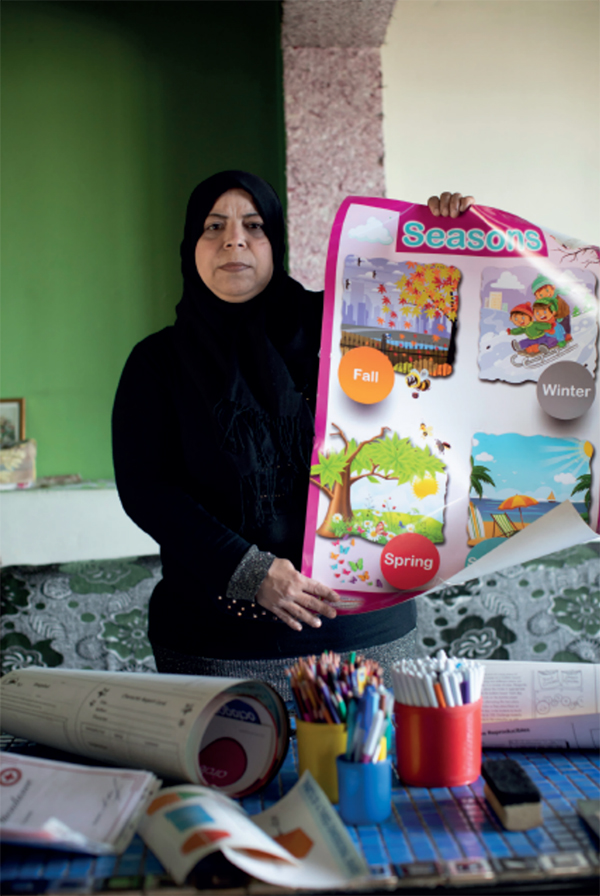
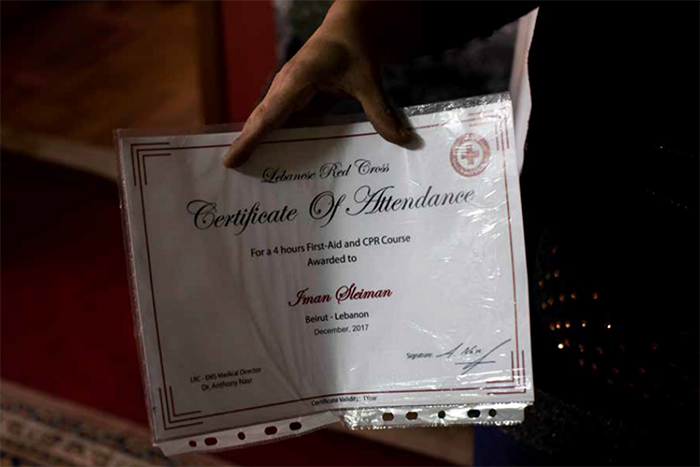
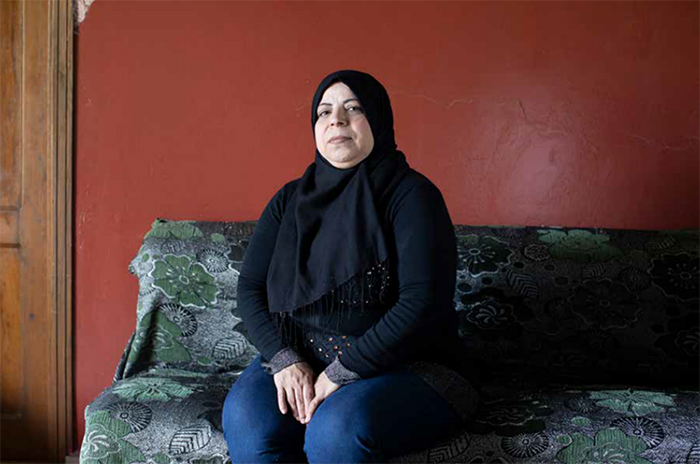
—
Taysir Batniji was born in Gaza, in 1966, and studied art at Al-Najah University in Nablus, Palestine. In 1994, he was awarded a fellowship to study at the School of Fine Arts of Bourges in France. Since then, he has been dividing his time between France and Palestine. During this period spent between two countries and two cultures, Batniji has developed a multi-media practice, including drawing, installation, photography, video and performance.
